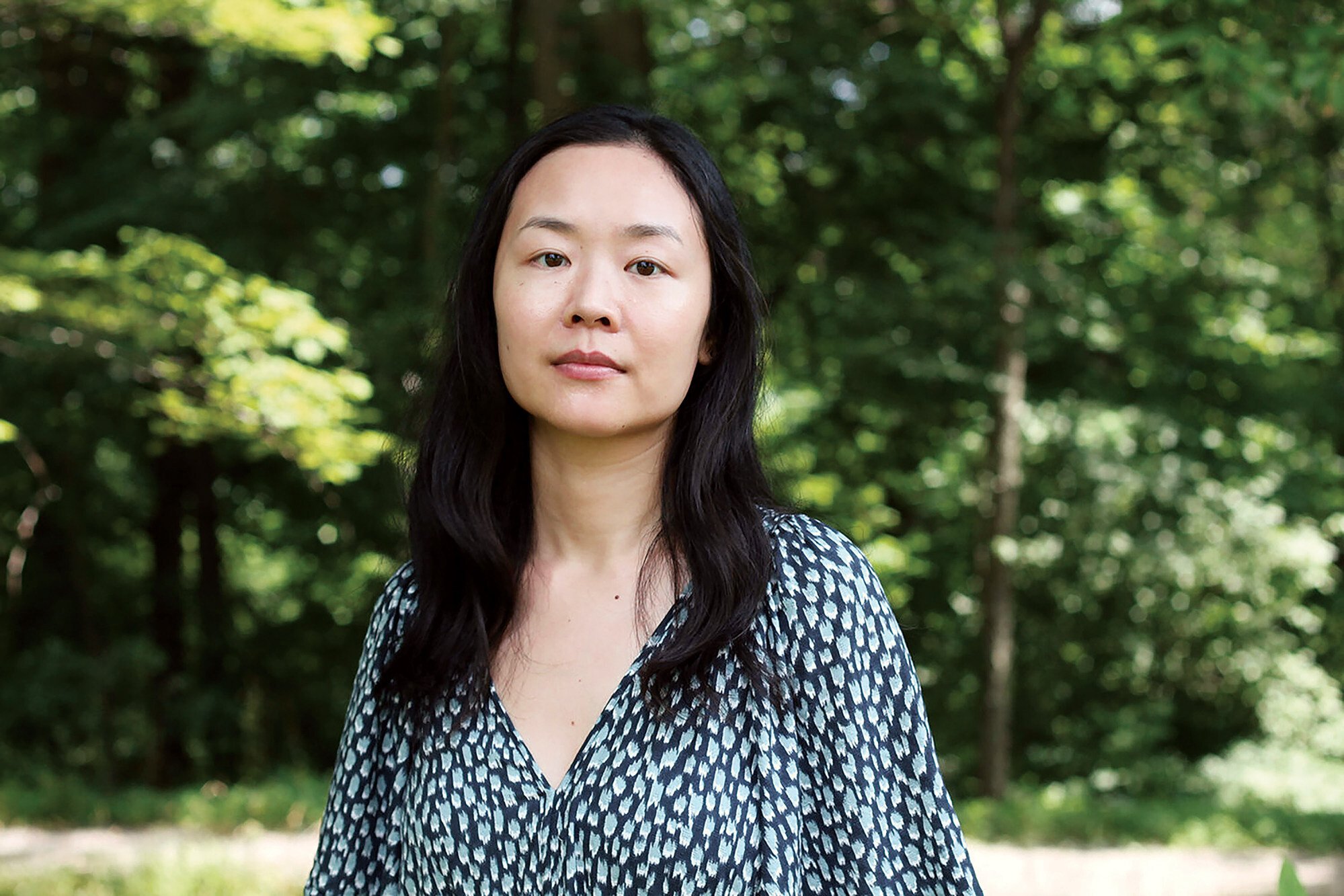
Review | She grows up in Vancouver, her father stays in Hong Kong. Only when he dies does she get to know him, in Pik-Shuen Fung’s original, affecting novel Ghost Forest
- In Pik-Shuen Fung’s Ghost Forest, an unnamed narrator grapples with adolescence in Canada and an absent father. His death spurs her to preserve his memory
- She turns to her mother and grandmother to understand him, and her Chinese heritage. Heavy themes, then, but conveyed with an artistry that brings joy
Ghost Forest by Pik-Shuen Fung, pub. One World
Pik-Shuen Fung’s Ghost Forest is a novel about loss. Constructed with admirable inventiveness and whimsy, it tells the story of an unnamed woman born in Hong Kong whose family immigrates to Vancouver, Canada, before the British territory’s 1997 return to China.
Her father, however, remains behind, his “astronaut” status (contrasting with “nuclear”, in which all members of the family are together in the same country and residence) typical of families for whom transnational identities were a matter of practicality – a way to mitigate uncertainty about Hong Kong’s future.
This choice means that the protagonist spends her childhood and formative adolescent years in Canada, coming of age through a cultural divide in which she is both Chinese and Canadian, complete with the identity crises one might expect.

Though she visits her father, and some of her extended family, in Hong Kong during summers, her connection to him is unsurprisingly strained. So when he eventually dies of cancer, she is left grasping for ways to keep his memory alive as well as confronting the sense she has always had that she has never been gwaai – good enough to be better than the son her father always wanted.
To work through the grief and her nagging thoughts of inadequacy, she turns to her mother and grandmother (who also left for Canada, with her husband, the narrator’s grandfather) for guidance and stories about her cultural heritage and her father.
While this narrative is compelling on its own, it is Fung’s artistry that makes the novel fresh in its presentation of the often heartbreaking moments it commands. Each chapter is a quick flash of the narrator’s experiences – vignettes that reveal plot details and chart her attempts to piece together the fractures death always produces. Sometimes, there are only a few sentences on a page.
Other times, such as when she surrenders the story to her grandmother and mother, who speak to us directly, we get fuller moments of exposition that are as helpful to the narrator as they are to us. And at other times still, Fung arranges the words on the page as if they are origami, so that complete sentences are less important than the texture of the narrator’s mental state.
Fung’s originality here makes the subject matter reach moments of joy despite its heaviness. Her narrator eventually processes her loss so that her father’s absence provides the opportunity for a new kind of connection to him – one that she was not able to achieve while he was alive.

Fung’s own story mirrors that of her protagonist. She, too, was born in Hong Kong and moved with her family to Vancouver when she was young. She, too, had an astronaut father who remained in Hong Kong while she and her sister grew up in Canada with an increasingly tenuous relationship to Hong Kong.
Unlike her narrator, however, she eventually went to university in the United States, at Brown, where she majored in visual art, and later to graduate school at the School of Visual Arts in New York, where between her first and second years, her father died.
Despite this, it is not necessary to think of the novel as autobiographical. Indeed, what is most interesting about the creation of Fung’s novel is the way in which her background in art led to her connection to writing. In “searching for [her] artistic voice” in art school, as she says, she “discovered that [she] wanted to be a writer”.
She had no plans to write a book, she says, but the more she wrote the more she realised she enjoyed what she was doing. Writing allowed her to bypass the “material variables” she encountered in visual art, and granted her an expressive freedom that suited her artistic interests.
That freedom is apparent on every page of Ghost Forest. Fung wrestled with feelings that she had wasted time pursuing a career in visual arts, but the process through which she arrived at the artistic achievements in her novel makes the detours in her career worthwhile.
The unnamed narrator of Ghost Forest reaches a point where her difficult experiences make her the dynamic person she becomes. Similarly, through her father’s death, Fung found an art form that allows her to engage with the human experience with affecting originality.
Her protagonist ends the novel by imagining what she would do if she had the opportunity to see her father again. As such, Fung’s novel invites us to live in the forest of unpleasant moments but never to remain there. The dead may speak to us long after they have departed, much as we can learn from moments that seem summarised by devastation.
As part of the Hong Kong International Literary Festival (festival.org.hk), Pik-Shuen Fung will appear with author K-Ming Chang in a virtual event called Ghosts, Beasts and Family Histories, 10am-11am on Nov 7.

